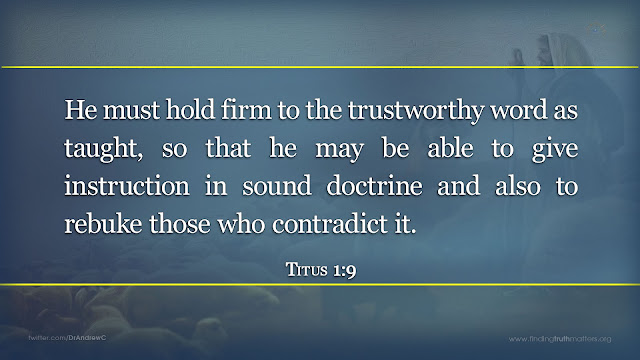ELDERSHIP AND GOVERNANCE
Every local church needs to be led, and to be governed. Both of these two wings also need to be structured. While I appreciate that some Christians just want their local church to be ‘simple’, even a simple church still requires leadership, government, and structure, Church Polity is the term describing how a church is led, governed and structured. Denominational churches have a Church Polity which involves some external authority such as a bishop, moderator, superintendent, or president, being an integral component in a local church’s governance. Beyond this potential layer of accountability and governance most local churches have some form of internal governance which they ground in their understanding of what the New Testament teaches. Yet, local churches may be governed:
(i) Congregational Government through democratic decision-making by each congregant member.
(ii) Elder-led Government through presbytery leadership decision making by the elders.
(iii) Pastor/Minister/Priest collaborative leadership with a Board of Officers entrusted by the congregation to make decisions on their behalf.
(iv) A Senior leader and an Operational Team comprised of staff members who make decisions on behalf of the church.
Another way to think of the different paradigms of local church government is: (i) Congregational (each member participates), (ii) Episcopal (decisions can be made by a bishop), and (iii) Presbyterian (decisions can be made by a presbytery of local church leaders with denominational decisions being made by representatives from each presbytery who comprise a session). In each form of government there are local church leaders who may be called ‘elders’. The elders of a church are also called 'overseers' of a church. They are called to lead, protect, correct, feed, and care for the flock. I think every elder needs to learn how to do these things. This involves being trained how to pastorally listen to congregants. For example, every elder needs to know how to respond to someone who pours out his or her heart to him about their recently traumatic loss of a beloved family member happening at the same time he or she had had their own medical event which led them to be hospitalised. At this point, if the elder interrupts, and says, “That’s nothing! You think that’s tough? Listen to what I’ve been going through! I’ve... [insert further evidence that the elder was not listening or caring to what he was being told].” Any elder who responds like this needs to be trained to empathise with those they are charged to care for. To further consider what the role of elders and overseers is according to what the Bible says, we begin with a consideration of how the Titus 1 defines this:
TABLE OF CONTENTS:
https://andrewcorbett.blogspot.com/2024/11/some-say-church-but-i-say-ecclesiology.html
https://andrewcorbett.blogspot.com/2024/11/ecclesiology-part-2-ecclesiology-has.html
https://andrewcorbett.blogspot.com/2024/11/ecclesiology-part-3-structure.html
https://andrewcorbett.blogspot.com/2024/11/ecclesiology-part-4-need-for-assembling.html
https://andrewcorbett.blogspot.com/2024/12/ecclesiology-part-5-eldership-and.html
https://andrewcorbett.blogspot.com/2024/12/part-6-ecclesiology-and-family-home.html
https://andrewcorbett.blogspot.com/2025/01/the-least-pastored-people-in-any-church.html
https://andrewcorbett.blogspot.com/2025/02/the-use-of-spiritual-gifts-within-local.html
https://andrewcorbett.blogspot.com/2025/03/ecclesiology-part-9-problems-and.html
https://andrewcorbett.blogspot.com/2025/05/ecclesiology-part-10-christoformity.html












No comments:
Post a Comment